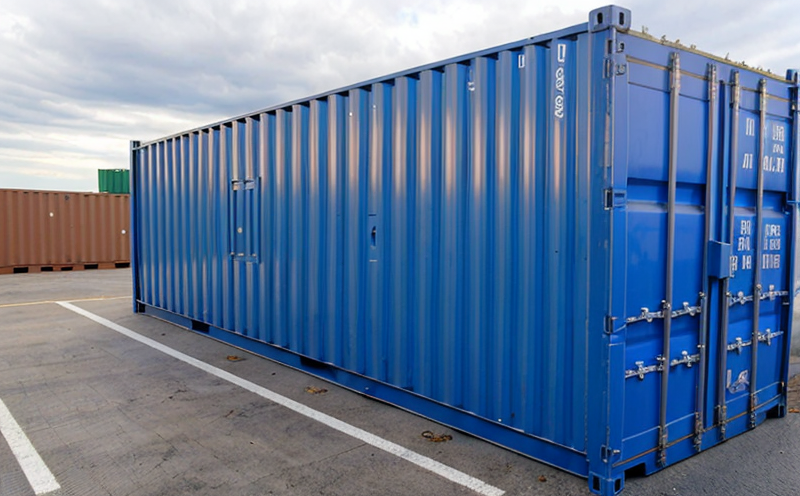BS 2782 Impact Resistance Testing of Plastic Storage Containers
The British Standard BS 2782:1995 specifies a method for determining the impact resistance of plastic storage containers. This test is crucial in ensuring that storage containers can withstand mechanical shocks and impacts, which is particularly important for products that undergo rough handling or are used in harsh environments.
The test involves subjecting the container to a controlled impact from an energy source such as a pendulum. The specimen, typically a standard size container with specific dimensions, is placed on a rigid surface. A notched or unnotched impactor strikes the container, and its ability to resist fracture is assessed based on the maximum impact energy absorbed before failure.
The test setup includes specialized equipment designed to deliver consistent impact energies. The pendulum's swing is calibrated to ensure uniformity across multiple tests. Specimen preparation is critical; it involves cleaning the surface of the container and ensuring that any notches or defects do not affect the test results.
BS 2782 distinguishes between notched and unnotched specimens, with different impact energies applied to each. Notched specimens are designed to simulate real-world impacts where a pre-existing defect may already be present. The standard provides specific guidelines for specimen dimensions, surface preparation, and the method of applying the impact.
The test results are reported in terms of the maximum energy absorbed before fracture. This metric is crucial as it indicates the container's ability to withstand mechanical stress without compromising its integrity. Compliance with this standard ensures that products meet industry requirements for durability and safety.
For R&D engineers, understanding these parameters is essential when designing new storage containers or improving existing models. Quality managers can use BS 2782 results to ensure product quality meets regulatory standards. Procurement teams can rely on the test to verify that suppliers meet the necessary impact resistance requirements.
Industry Applications
| Industry Sector | Application |
|---|---|
| Agriculture & Food Processing | Ensuring containers used for transporting and storing food products can withstand rough handling during transport. |
| Pharmaceuticals | Verifying the robustness of storage containers for medicines that are subject to mechanical stress. |
| Retail & Wholesale Distribution | Guaranteeing the integrity of packaging used in warehouses and distribution centers where containers may experience significant impact loads. |
| Manufacturing | Evaluating storage solutions for industrial environments, where robustness is critical to prevent product damage during transport. |
International Acceptance and Recognition
The BS 2782 standard has gained recognition worldwide due to its rigorous testing method. Many international standards organizations have referenced or adapted parts of this British Standard for similar tests in various countries. For instance, the American Society for Testing and Materials (ASTM) offers a comparable test through ASTM D6110.
Adherence to BS 2782 is beneficial as it ensures compatibility with international standards, facilitating trade between countries that have adopted these specifications. Compliance can also enhance a company's reputation in the global market, demonstrating commitment to quality and safety.
Many regulatory bodies around the world require compliance with such tests to ensure product safety. By meeting BS 2782 requirements, manufacturers can avoid costly recalls and legal issues associated with non-compliance. This standard also helps reduce insurance premiums by showcasing a proactive approach to risk management.
Competitive Advantage and Market Impact
- Enhances brand reputation through consistent product quality.
- Promotes trust with customers, especially in sectors like food and pharmaceuticals where container integrity is paramount.
- Facilitates easier compliance with international regulations, thereby simplifying export processes.
- Supports innovation by providing a benchmark for measuring new product designs against existing industry standards.





